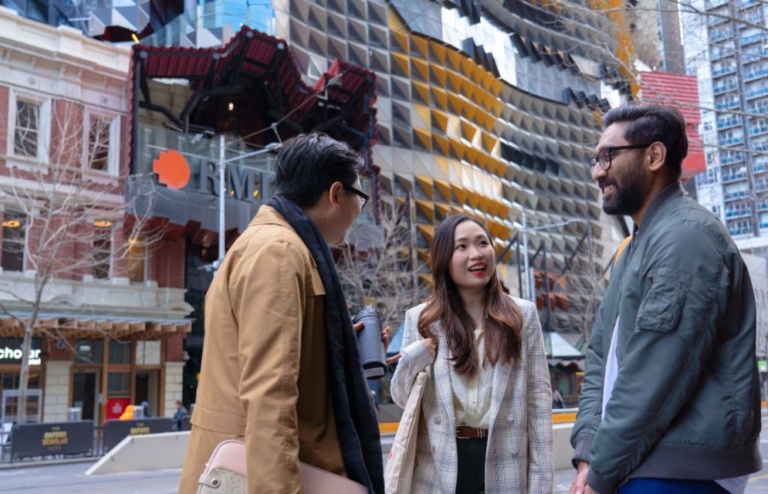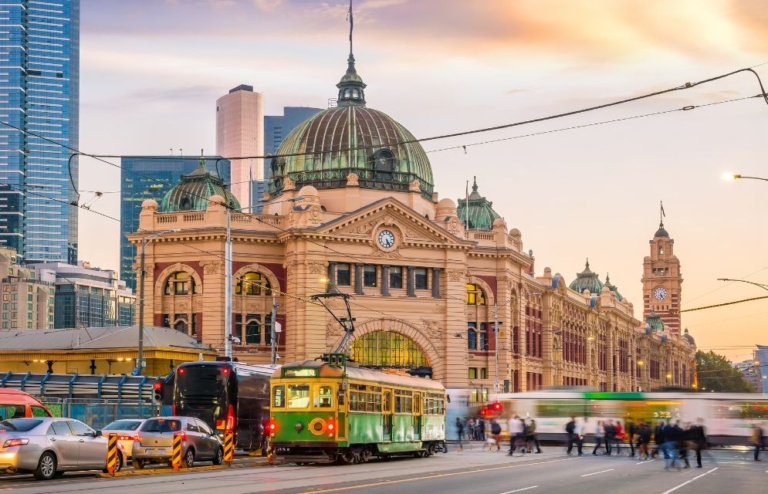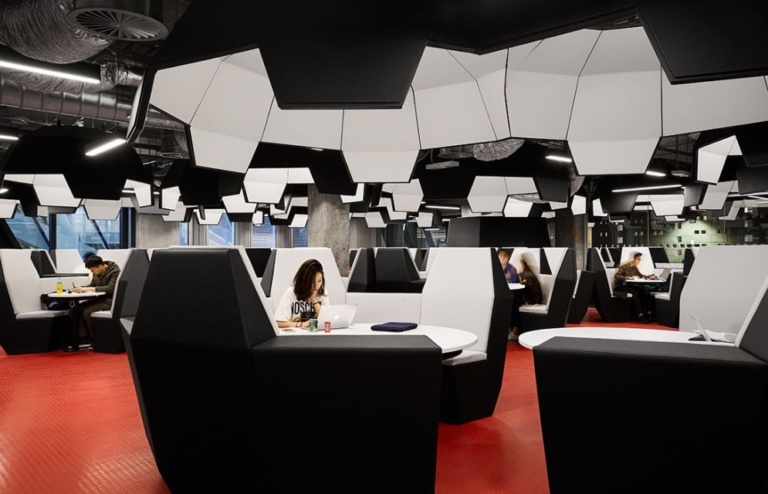Life at RMIT
Located in Melbourne, RMIT University is renowned for its industry-focused education and high-impact research. By choosing RMIT, students are choosing a global university recognised for leadership and innovation in technology, design and enterprise.
Its urban campus and strong ties with industry provide students with real-world experiences and opportunities. Students learn from experts across various fields of study, while benefitting from strong industry connections and a curriculum influenced by the latest industry trends. By studying with NCUK, students can be part of this innovative Australian institution and gain a quality higher education experience abroad.
Why NCUK is your best route to University
120+
NCUK Study Centres around the world
70+
International University Partners
50,000+
Students placed at university
9,000+
Degree Courses across our University Partners
100+
Student nationalities choose to study with NCUK
87%
of students get into their 1st or 2nd choice university
Life at RMIT
Student Life at RMIT
RMIT University offers a vibrant student life, with a wide range of clubs, societies, and sports teams, ensuring a lively and engaging campus atmosphere. Its Melbourne City campus is in the heart of the city, offering students a rich cultural and social experience amidst urban life.
The university’s focus on practical learning and strong ties with industry provide students with real-world experiences and opportunities that go beyond the classroom. By studying abroad at RMIT University, you can be part of this dynamic and innovative student community.
Careers at RMIT
RMIT University places a strong emphasis on career development. The university provides industry-based learning and global work experiences, ensuring students are job-ready upon graduation. It also offers dedicated support for budding entrepreneurs through its Activator program.
As an international student, studying abroad at RMIT provides you with a quality education and enhances your employability and entrepreneurial skills.

City Life at RMIT
RMIT University is situated in Melbourne, known for its art, food, and music scenes. The city is a cultural hub, housing numerous museums and galleries, including the National Gallery of Victoria and Melbourne Museum.
Foodies can explore the city’s diverse food markets, while music lovers can enjoy live performances at venues across the city. The city’s many festivals, such as the Melbourne International Comedy Festival and Melbourne Fringe Festival, add to its vibrant atmosphere. Studying at RMIT University allows you to experience this vibrant city life.

Student Support at RMIT
RMIT University prioritises student welfare and academic success. The university offers a range of services, including counselling, disability support, and academic skills workshops, ensuring students have the necessary support to succeed both personally and academically.
The Study and Learning Centre provides learning advice and resources, facilitating academic success. Additionally, the RMIT Connect portal assists with administrative queries, ensuring students can focus on their studies. As an international student, studying abroad at RMIT University means access to this comprehensive support network, enhancing your study experience.
Student Accommodation at RMIT
RMIT University offers a range of quality accommodation options to suit different budgets and needs. RMIT Village, located close to the Melbourne city campus, offers modern, self-contained studios with communal facilities such as a cinema room, a games room and a study area.
UniLodge on A’Beckett, located just a short walk from the city campus, offers shared apartments with a private bathroom and a shared kitchen. These accommodation options offer a supportive and inclusive environment, ensuring a quality study abroad experience for international students.
Facilities at RMIT
RMIT University in Australia offers top-tier facilities to enhance your study abroad experience. The university’s labs are equipped with the latest technology for hands-on learning in fields like engineering, health sciences, and communication.
Modern, interactive lecture theatres facilitate dynamic learning experiences. The comprehensive library provides a wealth of resources, including books, journals, and electronic resources. The School of Media and Communication boasts industry-standard production facilities, while the RMIT sports centre offers a wide range of indoor and outdoor sports facilities.

Sports & Clubs at RMIT
RMIT University fosters an active student life with various sports and societies. The RMIT Redbacks, the university’s representative sporting team, competes in a variety of sports, including basketball, netball, and athletics. The RMIT Sports Centre provides excellent facilities for these teams to train and compete.
Furthermore, the university hosts numerous clubs and societies, from the RMIT Law Students Society to the RMIT Food Science and Technology Association, offering international students the chance to meet like-minded peers, pursue their passions, and enhance their study abroad experience.
Sustainability at RMIT
RMIT University is committed to creating a sustainable future through its ‘Sustainability Action Plan’. This comprehensive plan aligns with the UNSDGs, focusing on areas such as energy efficiency, waste management, and sustainable transport.
Studying abroad at RMIT offers international students the unique opportunity to contribute to these sustainability initiatives while receiving a world-class education.
Rankings
Ranked 10th in Australia and 125th in the world (QS World University Rankings 2026)
Ranked 9th in Australia (Times Higher Education World University Rankings 2024)


Scholarships
STEM Scholarships for Southeast Asia
Five scholarships valued at AU$10,000 are available for students from Southeast Asia who achieve an A (overall 70%) in their NCUK qualification and apply for an associate degree, bachelor’s degree, or master’s by coursework offered by one of the following RMIT Schools: Engineering; Health and Biomedical Sciences; Science; Computing Technologies.An application is required. (Southeast Asia countries include Indonesia, Thailand, Philippines, Malaysia, Singapore, Vietnam, Myanmar, Cambodia, Laos and Brunei). Deadline: 31st January 2023. Find out more by clicking here.